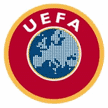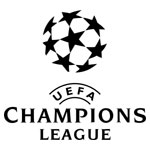|

| ||
This page was the main page of the 2013/2014 season. All text has to be interpreted within that context. No changes are applied. On this site you will find everything about the calculation of coefficients and rankings used for the qualification and seeding of teams for the Champions League and the Europa League.
The following general information is available: database with all results and rankings, detailed description of the method of calculation, graphs of ranking data, news for a selection of published articles, links to other football sites, forum for discussions on European Cup football, search for match results, history with formats in previous years, and an overview with all clubs participating in European Cups since 1955.
See below for a general description of the format of the Champions League and the Europa League.

Champions League
The Champions League has 32 teams in the group stage, and is preceded
by four qualifying stages. The last qualifying round is also called the
play-off round. The champions of all countries enter the Champions
League, but high ranked countries can send up to 4 teams. Some teams of
high ranked countries are directly qualified for the group stage, while
others have to play qualifying rounds.
See
wikipedia
for more general info.
| CHAMPIONS LEAGUE | ||
|---|---|---|
| 1st Qualifying Round | July | 6 champions from countries ranked 48 or lower |
| 2nd Qualifying Round | July |
involving 34 teams: 3 winners from 1st qualifying round 31 champions from countries ranked 16-47 |
| 3rd Qualifying Round | Jul-Aug |
involving 30 teams split in two sections: Champions section with 20 teams 17 winners from 2nd qualifying round 3 champions from countries ranked 13-15 Non-Champions section with 10 teams 9 second-placed teams from countries ranked 7-15 1 third-placed team from country ranked 6 |
|
4th Qualifying Round (play-off round) |
August |
involving 20 teams split in two sections: Champions section with 10 teams 10 winners from 3rd qualifying round Non-Champions section with 10 teams 5 winners from 3rd qualifying round 2 third-placed teams from countries ranked 4-5 3 fourth-placed teams from countries ranked 1-3 |
| Group Stage | Sep-Dec |
involving 8 groups of 4 teams each: 10 winners from 4th qualifying round 12 champions from countries ranked 1-12 6 second-placed teams from countries ranked 1-6 3 third-placed teams from countries ranked 1-3 1 defending cup holder |
| Round 2 | Feb/Mar |
involving 16 teams: 8 group winners from the group stage 8 group runners-up from the group stage |
| Final stage | Mar-May |
involving 8 teams: 8 winners of the second round play the quarter finals, the semi finals, and the final |
 Losing teams of the 3rd qualifying round enter the 4th qualifying
round of the Europa League,
while losing teams of the 4th qualifying round enter the group stage
of the Europa League,
and third-placed teams from the group stage
enter the round of 32 in the Europa League.
Losing teams of the 3rd qualifying round enter the 4th qualifying
round of the Europa League,
while losing teams of the 4th qualifying round enter the group stage
of the Europa League,
and third-placed teams from the group stage
enter the round of 32 in the Europa League.
The title-holder always qualifies directly for the group stage of the Champions League. If the title holder already qualified for European football the total number of teams of that association does not change. The maximum number of teams of one association in the group stage of the Champions League is four. If more teams qualify the last-placed team for the Champions League of that association has to take part in the Europa League.
If the title holder already qualified for the group stage of the Champions League, the champion of the 13th country on the country ranking list will gain direct access to the group stage, the champion of the 16th country on the country ranking list will gain direct access to the 3rd qualifying round, and the champions of the 48th and 49th country on the country ranking list will gain direct access to the 2nd qualifying round. Similar changes (with priority to champions) are made if the cup holder already qualified for one of the qualification rounds.
If in the group stage of the Champions League two or more teams finish equal on points after all the group matches have been played, the following criteria are applied to determine the group rankings:
- Higher number of points obtained in the matches between the teams in question
- Superior goal difference from the matches between the teams in question
- Higher number of goals scored in the matches between the teams in question
- Higher number of goals scored away from home in the matches between the teams in question
- If teams still have an equal ranking, the above criteria 1-4 are reapplied exclusively to the matches between the teams in question to determine the final ranking. If this procedure does not lead to a decision, the criteria 6-8 below apply
- Superior goal difference from all group matches played
- Higher number of goals scored
- Coefficient points accumulated by the club in question, as well as its association, over the previous five seasons (Team Ranking)
See the Regulations of the UEFA Champions League 2013/2014 (pdf file at uefa.com) for a complete and formal description of all regulations.

Europa League
The Europa League is a competition for the cup winners and a number of
high-placed teams of the domestic league in each country. The number of
teams is depending on the country ranking. Furthermore some teams expelled
from the Champions League and 3 teams from countries who top the UEFA Fair Play competition. See wikipedia for more general info.
| EUROPA LEAGUE | ||
|---|---|---|
| 1st Qualifying Round | July |
involving 78 teams: 21 cup winners from countries ranked 33-53 25 second-placed teams from countries ranked 28-53 29 third-placed teams from countries ranked 22-51 3 teams of the Fair Play competition |
| 2nd Qualifying Round | July |
involving 80 teams: 39 winners from 1st qualifying round 14 cup winners from countries ranked 19-32 12 second-placed teams from countries ranked 16-27 6 third-placed teams from countries ranked 16-21 6 fourth-placed teams from countries ranked 10-15 3 fifth-placed teams from countries ranked 7-9 |
| 3th Qualifying Round | Jul/Aug |
involving 58 teams: 40 winners from 2nd qualifying round 3 cup winners from countries ranked 16-18 6 third-placed teams from countries ranked 10-15 3 fourth-placed teams from countries ranked 7-9 3 fifth-placed teams from countries ranked 4-6 3 sixth-placed teams from countries ranked 1-3 |
| 4th Qualifying Round | August |
involving 62 teams: 29 winners from the 3th qualifying round 9 cup winners from countries ranked 7-15 3 third-placed teams from countries ranked 7-9 3 fourth-placed teams from countries ranked 4-6 3 fifth-placed teams from countries ranked 1-3 15 teams eliminated in the 3rd qualifying round of the Champions League |
| Group stage | Sep-Dec |
involving 12 groups of 4 teams each: 31 winners of the 4th qualifying round 6 cup winners from countries ranked 1-6 10 teams eliminated in the 4th qualifying round of the Champions League 1 defending cup holder |
| Round 2 | February |
involving 32 teams: 12 group winners from the group stage 12 group runners-up from the group stage 8 third-placed teams from the group stage of the Champions League |
| Round 3 | March |
involving 16 teams: 16 winners of the second round |
| Final stage | April-May |
involving 8 teams: 8 winners of the second round play the quarter finals, the semi finals, and the final |
 If the cup winner of a country qualifies for the Champions League,
then the losing cup finalist is qualified for the Europa League. If
both cup finalists qualify for the Champions League, then an
additional team based on league position will be qualified. However,
the losing cup finalist does not get the Europa League cup-winner
spot, but gets the last available Europa League spot of that country.
The cup winner spot of that country goes to the team with the highest
league position. In some countries (England and France) the last
league entrant position is given to the League Cup Winner.
If the cup winner of a country qualifies for the Champions League,
then the losing cup finalist is qualified for the Europa League. If
both cup finalists qualify for the Champions League, then an
additional team based on league position will be qualified. However,
the losing cup finalist does not get the Europa League cup-winner
spot, but gets the last available Europa League spot of that country.
The cup winner spot of that country goes to the team with the highest
league position. In some countries (England and France) the last
league entrant position is given to the League Cup Winner.
The title-holder qualifies directly for the group stage of the Europa League. If the title holder already qualified for a qualifying round of the Europa League the total number of teams of that association does not change. The title holder spot in the Europa League is not used if the title holder qualified for the Champions League. The unused title holder spot and other empty spots are filled in the Europa League with priority for cup winners.
If two or more teams are equal on points on completion of all the group matches, the same criteria as for the Champions League apply (see above).
See the Regulations of the Europa League 2013/2014 (pdf file at uefa.com) for a complete and formal description of all regulations.
| Bert Kassies |
|
